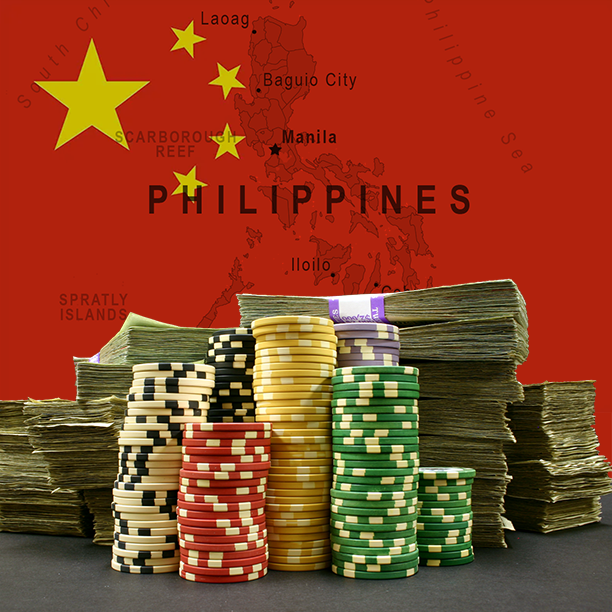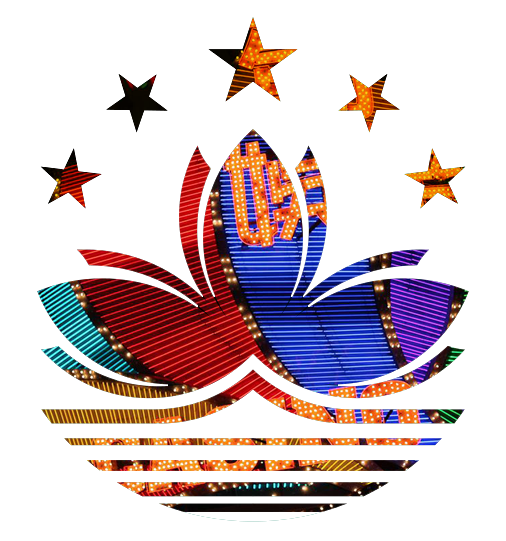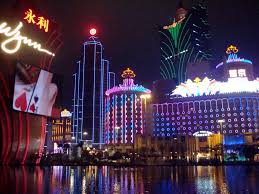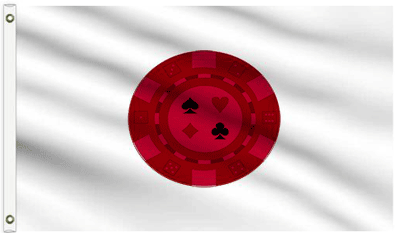Asia has dominated global gambling headlines for decades
Asia has had a long and storied interest in gambling, but for the most part gambling has been illegal, with a few exceptions. Japan only offers legal betting on horse racing, lotteries and motor racing, Hong Kong only allows legal gambling on horse racing, conducted by the Hong Kong Jockey Club, and in Vietnam gambling was always illegal, until 2018 when sports betting became authorized, although it is government controlled. Gambling in mainland China is completely banned and the government will go as far as prosecuting individuals caught gambling and executing any people involved in the business of gambling.
The Philippines
The two major exceptions where gambling is completely legal and has been for centuries are Macau and the Philippines. While gambling in the Philippines has been prevalent for decades, it was always unregulated. That changed in 1977 when the Philippines government set up an agency called the Philippine Amusement and Gaming Corporation (PAGCOR) to regulate gambling in the country. Along with being the regulator and licensor for private gambling businesses, it also owns and operates gambling products with the money from their public casino going to government coffers. Aside from casinos, both stand alone and resort, PAGCOR operates bingo parlors and slot clubs. The country has two private integrated resort casinos, both located in Manila, which are Resorts World, a 1,600-room hotel and casino owned by a joint venture of Genting Hong Kong and Alliance Group based in the Philippines, and City of Dreams Hotel and Casino, a 938-room hotel owned by Melco Resorts and Entertainment, which has offices in Hong Kong and the Philippines.
PAGCOR mostly dealt with land-based operations, but with the proliferation of online gambling and the opportunity to pad state coffers, PAGCOR decided to start licensing offshore companies to take bets from anywhere in the world, except the Philippines. Most of the bets come from China, although, as mentioned, gambling in China is technically illegal.  The licensed operators known as Philippine Offshore Gaming Operators (POGOs) targeted Chinese customers and hired mostly Chinese nationals to take the bets since they were best to know how to circumvent Chinese restrictions and what bets would entice Chinese gamblers. They also spoke the language. Before regulation it was estimated there were over 250 POGOs employing 300,000 people (most bet takers were Chinese, although the other staff were mostly Filipino), but PAGOR only licensed 60 POGOS meaning the vast majority were operating without a license. As part of the new licensing agreement POGOs give 2% of the gross gambling revenue as a fee to the Philippines government and pay several other fees related to annual licensing and operations. Unlicensed POGO operators were technically operating since 2003, although they were referred to differently until 2016. In 2022, after threats were made by the Chinese government to crack down on POGOs targeting Chinese nationals or face serious ramifications, the government shut down 175 unlicensed offshore operators and deported 40,000 Chinese workers. The official announcement by the Philippines government was that they were being closed because of reports of murder, kidnapping, prostitution and money laundering along with other crimes, although all analysts agree the real reason for the quick actions was due to the Chinese threats. Nevertheless, many online companies are still looking at the Philippines as an opportunity and are doing everything in their power to obtain a PAGCOR license.
The licensed operators known as Philippine Offshore Gaming Operators (POGOs) targeted Chinese customers and hired mostly Chinese nationals to take the bets since they were best to know how to circumvent Chinese restrictions and what bets would entice Chinese gamblers. They also spoke the language. Before regulation it was estimated there were over 250 POGOs employing 300,000 people (most bet takers were Chinese, although the other staff were mostly Filipino), but PAGOR only licensed 60 POGOS meaning the vast majority were operating without a license. As part of the new licensing agreement POGOs give 2% of the gross gambling revenue as a fee to the Philippines government and pay several other fees related to annual licensing and operations. Unlicensed POGO operators were technically operating since 2003, although they were referred to differently until 2016. In 2022, after threats were made by the Chinese government to crack down on POGOs targeting Chinese nationals or face serious ramifications, the government shut down 175 unlicensed offshore operators and deported 40,000 Chinese workers. The official announcement by the Philippines government was that they were being closed because of reports of murder, kidnapping, prostitution and money laundering along with other crimes, although all analysts agree the real reason for the quick actions was due to the Chinese threats. Nevertheless, many online companies are still looking at the Philippines as an opportunity and are doing everything in their power to obtain a PAGCOR license.
Macau
Macau is a Chinese Special Administrative Region that has had gambling for as long as one can recall. In the 1500s the Chinese government leased Macau to Portugal, who paid rent to the Chinese government for the land. In 1999 the land was returned to China who made it, along with Hong Kong, special administrative regions, meaning that they are run with some autonomy, but are still a part of China. While gambling has existed in Macau since the 1800s, it didn't become a casino mecca until 1962.  Hoping to make Macau self-sufficient, the country legalized land-based casinos and gave the gambling monopoly to Sociedade de Turismo e Diversões de Macau (STDM), a company that was headed by billionaire Stanley Ho. The license was renewed in 20-year increments until 2002 when the Macau government, in collaboration with the Chinese government, demanded the monopoly system be ended.
Hoping to make Macau self-sufficient, the country legalized land-based casinos and gave the gambling monopoly to Sociedade de Turismo e Diversões de Macau (STDM), a company that was headed by billionaire Stanley Ho. The license was renewed in 20-year increments until 2002 when the Macau government, in collaboration with the Chinese government, demanded the monopoly system be ended.
Macau held bids for three new licenses and the world came running hoping to get in on the cash cow. Three Las Vegas firms bid for a license, MGM, Wynn and Las Vegas Sands. In the end licenses were given to SJM Holdings (a subsidiary of STDM), Galaxy Entertainment, (a Hong Kong based hospitality and tourism company), and Wynn Resorts, (an American company owned by Steve Wynn and operating out of Nevada). There was a lot of anger among the losing companies who said the process was rigged. So, in June 2002, Macau decided to allow each winning company to have a subconcession relationship, whereby each winning bidder would work with the other company to offer games and build casinos under their winning bid. Despite the name subconcession, they were still full casinos, so effectively it became six casino licenses. Las Vegas Sands was the subconcession for Galaxy Entertainment and MGM was the subconcession for SJM. Melco International Development Limited, which as mentioned owns one of the major resort casinos in Manila, was the subconcession for Wynn Resorts.
The setup seemed to work, but the Chinese government became concerned about problem gambling from Chinese nationals and put in restrictions on how often they could visit and how much they could wager. Not surprisingly this ate into casino profits. The Chinese government was also upset about casino junkets, which were often headed by organized crime. The junkets recruited and shuttled Chinese and Hong Kong natives to Macau casinos and in turn get a cut of their play from the casinos. So, they may have a deal with Sands whereby if say, a gambler they recruit loses $1 million at the tables, the junkets may get 30% of those losses. It seems they also pay casinos if the bettor wins, so they act as an agent of the casino. They also were known to provide prostitutes, drugs and other illicit incentives to get the bettors to use with their services. To add to the frustration of the Chinese government, Macau was hit with a bribery and money laundering scandal which led to the arrest and sentencing of a Macau official who got 27 years in a Chinese prison.
The revelation of corruption and crime became front page news in the 2010s when Steven Jacobs, the CEO of Sands China, sued Las Vegas Sands for wrongful dismissal after he alleged that he was fired because he tried to dismiss a corrupt lawyer, whose only job was to smooth things over between China and Sheldon Adelson, when Adelson pissed the government off. Jacobs also planned to cut out the junket operators, which he deemed were corrupt, unnecessary and who took way too much of the profits. But Adelson claimed doing so would be financial suicide, since junkets accounted for 50-60 percent of the casino revenues. Adelson acknowledged that while he didn’t like it, junkets and bribes were just a part of doing business in Macau. The revelations upset the Chinese government, who were angry that they were named in the scandal and they threatened to force Macau to cut back on non-Asian licenses. During the COVID-19 pandemic the Chinese government announced it was going to appoint special officials to oversee the Macau casinos and watch for cheating or anything untoward. This announcement resulted in most junkets ceasing operations. It appeared the cutback on foreign licenses could happen in 2022 when the 20-year licenses handed out in 2002 expired. There was also a question as to whether the companies would want to renew since the COVID-19 pandemic hit Macau extremely hard and revenue was a fraction of what it was prior to 2020 due to lockdowns and limited travel for non-Macau residents, who would have needed to quarantine first and there was no indication if and when this would change. Losses for the Macau casinos were more than significant from 2020 to 2022. Add to that the Chinese government’s announcement that it would be more involved in casino oversight and a requirement by Macau that licensees would have to invest billions in non-gaming projects such as parks and public exhibits and it was uncertain whether the American casino companies still wanted to be a part of this new scheme. There were also some suggestions that the country would increase the number of licenses.
It appeared the cutback on foreign licenses could happen in 2022 when the 20-year licenses handed out in 2002 expired. There was also a question as to whether the companies would want to renew since the COVID-19 pandemic hit Macau extremely hard and revenue was a fraction of what it was prior to 2020 due to lockdowns and limited travel for non-Macau residents, who would have needed to quarantine first and there was no indication if and when this would change. Losses for the Macau casinos were more than significant from 2020 to 2022. Add to that the Chinese government’s announcement that it would be more involved in casino oversight and a requirement by Macau that licensees would have to invest billions in non-gaming projects such as parks and public exhibits and it was uncertain whether the American casino companies still wanted to be a part of this new scheme. There were also some suggestions that the country would increase the number of licenses.
In the end nothing changed. All companies with a license maintained their licenses as of January 2023 for 10 years although the subconcessions were now full casinos. Nevertheless, many of the companies said they are keeping their options open moving forward.
Japan
The last major development in Asia was the announcement by Japan that it was going to entertain bids for a resort casino. In 2016 the Japanese government passed a law to legalize casinos, as long as they are integrated into hotels, convention rooms and shopping centers. As soon as the announcement was made four Japanese cities indicated interest - Osaka, Yokohama, Nagasaki and Wakayama.
Osaka, with a population of close to 3 million people and a bustling tourist city, was seen as the big draw and all the major casino companies threw their hat into the ring. The winning casino was expected to be a close fight between Genting Singapore, Galaxy Entertainment, Las Vegas Sands and MGM.  However, MGM became the big favorite after it announced it was prepared to go all in, including selling off Las Vegas casinos to help finance the bid. They initially said they would spend up to $10 billion to build the integrated resort casino and later said it could be as high as $12 billion. This led the other bidders to say they were dropping out of an Osaka bid and instead would focus on the other cities. So, MGM effectively won the Osaka bid. MGM was anxious to get started so they could feature the new casino at the 2025 World’s Fair in Osaka, but then COVID-19 hit. The realities of the pandemic, including lost revenues worldwide and an announcement by China that it would look at limiting Chinese national visits to Japan, put a damper on the whole proceeding. MGM still expressed interest, but were going to lower their offer, since the casino wouldn’t be able to be completed until after 2025. Osaka in return said that it would not be willing to accept a lower bid and was prepared to hold out until they got what was coming to them. Nothing happened with the Osaka bid for over a year.
However, MGM became the big favorite after it announced it was prepared to go all in, including selling off Las Vegas casinos to help finance the bid. They initially said they would spend up to $10 billion to build the integrated resort casino and later said it could be as high as $12 billion. This led the other bidders to say they were dropping out of an Osaka bid and instead would focus on the other cities. So, MGM effectively won the Osaka bid. MGM was anxious to get started so they could feature the new casino at the 2025 World’s Fair in Osaka, but then COVID-19 hit. The realities of the pandemic, including lost revenues worldwide and an announcement by China that it would look at limiting Chinese national visits to Japan, put a damper on the whole proceeding. MGM still expressed interest, but were going to lower their offer, since the casino wouldn’t be able to be completed until after 2025. Osaka in return said that it would not be willing to accept a lower bid and was prepared to hold out until they got what was coming to them. Nothing happened with the Osaka bid for over a year.
As for Yokohama, the city decided not to host an integrated resort after a new mayor was elected who opposed gambling and after Yukio Fujiki, an influential businessman in the city, said he would kill himself if the city ever put in a casino. The bid process for Yokohama was completed and it was narrowed down to Genting and Melco. However, this is a moot point, since the city never submitted an official application to the national government before the deadline and the city will not even consider a new bid until there is a different mayor and/or until Fujiki dies of natural causes. Wayakama seems to have put their bid on hold and Nagasaki submitted a bid to the national government, but there are no details and the national government said it won’t even consider the bid until there is more information. Las Vegas Sands which was looking at both Yokohama and Nagasaki announced this year that it is withdrawing any interest in a Japanese bid and would focus on Asian countries that are already established. And both Wynn and Caesars, which had expressed some interest, have announced they are no longer interested in Japan either.
That leaves Osaka. In April this year, Osaka announced that it reached a deal with MGM and the casino will be completed by 2029. The bid is a partnership between MGM and Orix, a Japanese financial group. Per terms of the agreement the partnership committed to $8.1 billion to build the casino which will include a hotel, shopping mall and ferry terminal to get patrons to the island casino in Yumeshima on Osaka Bay. High rollers will apparently be able to forego the ferry and land on an adjacent helicopter pad. MGM and Orix each get a 40% stake in the casino and the other 20% is divided by the government and a host of other local companies.
So, Asia has been a major focus of gambling since OSGA started operations and it will no doubt become even bigger as online companies realize that the massive population there is the key to growth. As this happens OSGA will be there covering all the details.
Read insights from Hartley Henderson every week here at OSGA and check out Hartley's RUMOR MILL!







































